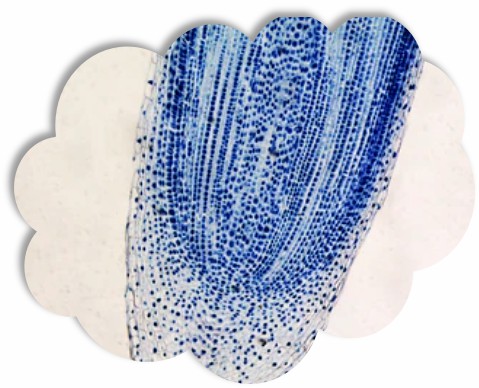Cell Proliferation in Research
Cell proliferation is one of the essential physiological functions of living cells, an important life feature of organisms. Detecting cell proliferation is one of the most important indicators for evaluating cell metabolism, physiology, cell activity, etc. Cell proliferation is related to various factors, such as cell metabolic activity, expression of proteins related to cell proliferation, and concentration of ATP. Plant cell proliferation detection has lots of applications in plant research. The application of cell proliferation can help researchers understand important issues in plant growth and development, plant hormone regulation, and plant pathology. Lifeasible is committed to plant cell biology. With our advanced technology platform and professional research team, we provide various effective methods for plant cell proliferation detection. By detecting the proliferation status of cells, we can help researchers delve into all aspects of cell biology.

Significance and application of plant cell proliferation detection
- Tissue culture. In healing tissue culture, cell value-added assays can be used to assess tissue growth rate and proliferative status to optimize culture conditions and improve healing tissue production.
- Plant growth and development studies. For example, in root tip cell proliferation research studies, since the root tip is a key site of plant growth where cells undergo rapid proliferation and differentiation, using cell value-added assays can help researchers quantitatively assess the proliferation rate of root tip cells to understand the regulatory mechanisms of root growth.
- Plant hormone research. Cell proliferation can help researchers analyze the effects of hormones on plant growth and development. For example, in the study of the effects of gibberellins on plant root growth, the use of plant cell value-added assays can help researchers study the effects of gibberellins on root growth to gain an in-depth understanding of plant hormone signaling mechanisms.
- Phytopathological research. Cell proliferation also has significant application value in plant disease research. For example, when we study plant-pathogen interactions, we use cell proliferation assays to evaluate the proliferation status of infected plant cells, thereby helping researchers understand Plant defense mechanisms against pathogen infection and study the functions of plant disease resistance genes.
Methods of plant cell proliferation detection
- Cell counts. We can use a microscope to count the number of plant cells. In addition, we also use computer image analysis software to process the microscope images to achieve automated counting.
- Cell cycle analysis. We use flow cytometry to analyze the distribution of cells in different cycle stages. In addition, we can also use DNA chromosome technology to observe and analyze the cell cycle by labeling DNA with fluorescent dyes or other stains.
- Metabolic activity detection. We can utilize MTT to assess the metabolic activity of cells by measuring their ability to reduce MTT dye. In addition, since ATP is a direct source of cellular energy, its content is closely related to the cell cycle and cellular state; dead or dying cells contain almost no ATP. A strict linear relationship exists between the ATP concentration measured in cells and the number of cells. Therefore, the detection of ATP also gives information about cell proliferation.
- Cell labeling method. Fluorescent dye labeling has a good application in plant cell labeling, and we can study cell proliferation by observing fluorescent signals through fluorescent dyes to label cell organelles or structures.
Our services workflow

Lifeasible has extensive experience in plant cell proliferation detection. We can help researchers gain a more comprehensive and in-depth understanding of plant cell proliferation under different experimental treatments and environmental conditions by combining the client's project's needs with the experimental material's characteristics. If you are interested in us, please feel free to contact us.
For research or industrial raw materials, not for personal medical use!

